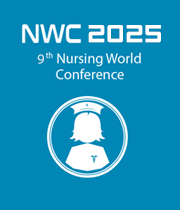Title : Development and implementation of an evidence-based nursing education program in undergraduate nursing studies: Experiences and insights
Abstract:
Although evidence-based nursing (EBN) is considered a core element of professional nursing education, its practical integration into undergraduate curricula remains inconsistent. In response, a comprehensive five-step EBN teaching system was developed and implemented at a higher education institution in Lithuania. Grounded in action research based on L. Norton’s (2019) theoretical model and built upon J. Bruner’s spiral curriculum and the theoretical perspectives of social constructivism, pragmatism, and A. Bandura’s learning theory, this study aimed to empower students to apply evidence-based approaches in clinical nursing practice. A mixed-methods design was employed across two research cycles. Quantitative data were collected using the validated Student and Teacher Evidence-Based Practice Questionnaires (S-EBPQ and T-EBPQ, developed by D. Upton and P. Upton, 2005). Data were analyzed using SPSS Statistics 29.0.2.0(20) software, applying the Wilcoxon test, paired and independent t-tests, and Spearman’s rank correlation to assess differences and relationships in EBN skills before and after the intervention. Qualitative data were gathered through written reflections and group surveys. Thematic content analysis was conducted using Atlas.ti software. In addition, students’ assignments – including evidence-based care plans, journal club reflections, clinical cases, and practice logs – were analyzed using a-priori content analysis (Norton, 2019). The analysis was guided by the CREATE rubric (Classification Rubric for Evidence-Based Practice Assessment Tools in Education; developed by Tilson et al., 2011) and supported by a content validation form (Yusoff, 2019). Assessment data were analyzed using the Content Validity Index (CVI) methodology (Polit, Beck & Owen, 2007) to ensure reliability. The results demonstrated a statistically significant improvement in students’ EBN knowledge, attitudes, and application skills. Students reported increased confidence in formulating clinical questions, critically appraising literature, and applying evidence in practice. Educators described a shift in their teaching role towards facilitation and mentorship. Both groups emphasized the importance of a collaborative and reflective learning environment. This presentation will outline the pedagogical design, implementation process, and empirical findings of the EBN program, offering insights into how structured evidence-based nursing education fosters clinical reasoning, professional autonomy, and a culture of inquiry in nursing education.


